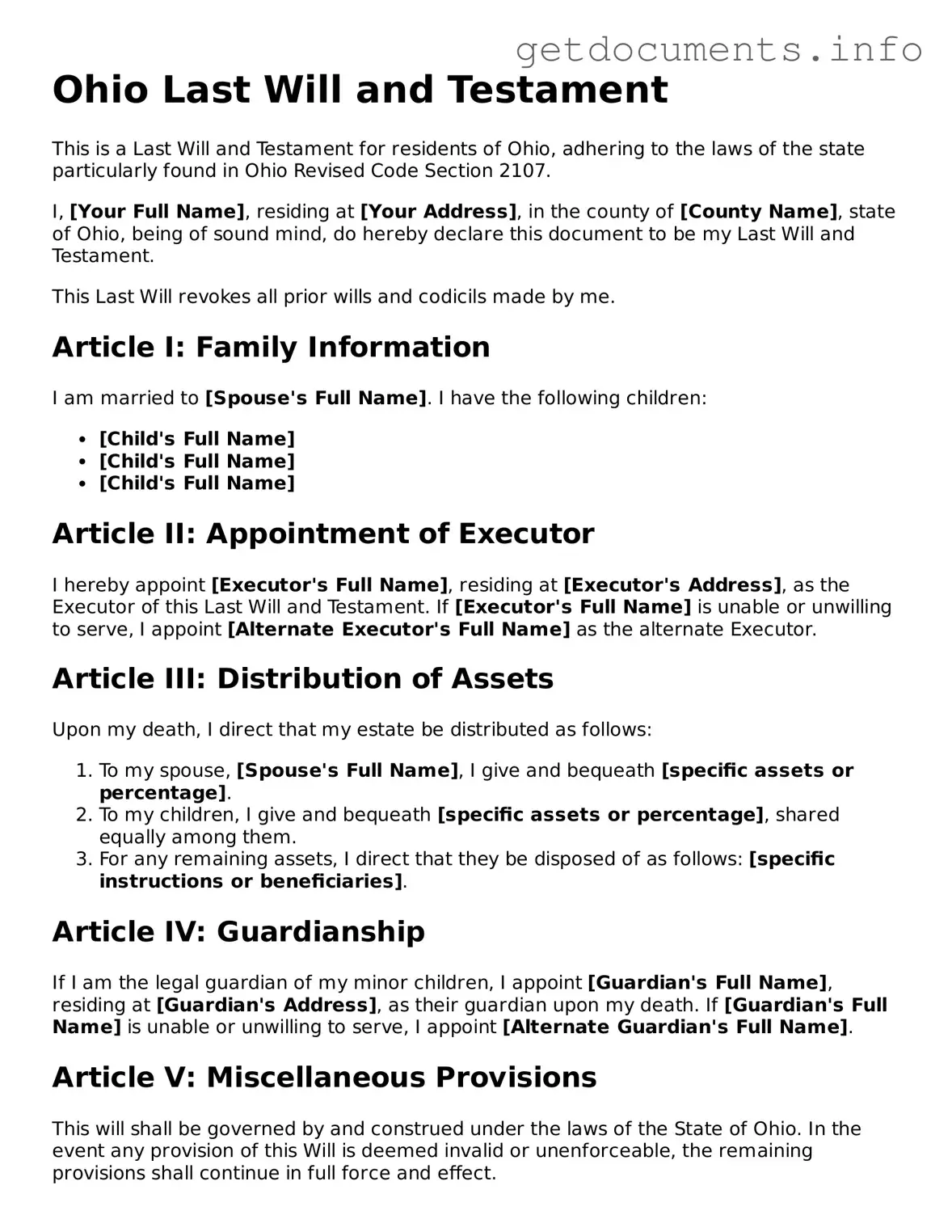Free Last Will and Testament Template for Ohio
A Last Will and Testament is a legal document that outlines how a person's assets and affairs should be handled after their death. In Ohio, this form allows individuals to specify their wishes regarding the distribution of property, guardianship of minor children, and other important matters. Understanding this form is essential for ensuring that your wishes are honored, so take the first step by filling out the form below.
Access Last Will and Testament Editor

Free Last Will and Testament Template for Ohio
Access Last Will and Testament Editor
Got places to be? Complete the form fast
Fill out Last Will and Testament online and avoid printing or scanning.
Access Last Will and Testament Editor
or
⇩ PDF File
